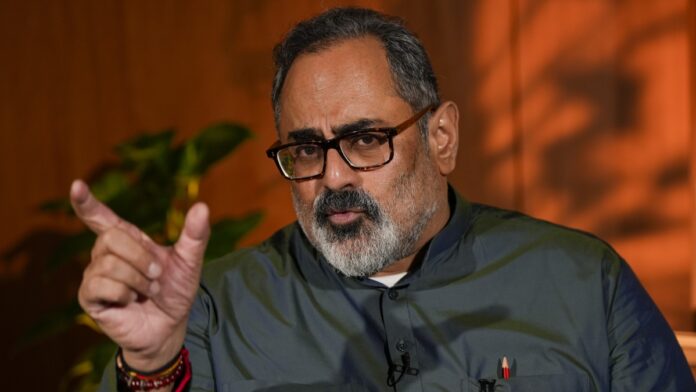When Rajeev Chandrasekhar (RC) was first elected to the Rajya Sabha in 2006, he told this writer the reason behind his entry into politics. The techpreneur, who once helmed the thriving BPL Communications, didn’t mince words. “I had a flourishing business until it was all destroyed by the 2001 backdoor entry of Reliance Infocomm into the cellular telephony business,” he said.
The controversy stemmed from Reliance’s licence for wireless in local loop—a limited mobility technology—which it leveraged to roll out full-fledged mobile services, proving disastrous for incumbents like BPL. For RC, it was a brutal lesson. “That’s when I realised it’s very important to be in public life to help shape public policy,” he told this writer.
Nearly two decades later, as he assumes the role of Kerala’s BJP state president, that conviction doesn’t seem to have wavered. His journey from a telecom pioneer to a full-time politician stems from his belief that technology and governance must intersect for progress.
ALSO READReliance Green, L&T Energy, Waaree among 9 to win Hydrogen projects
Born on May 31, 1964, in Ahmedabad to an Air Force officer and a homemaker, he graduated in electrical engineering from Manipal Institute of Technology before earning a master’s in computer science from the Illinois Institute of Technology. His early career at Intel laid the groundwork for his return to India, where he joined his father-in-law’s firm, BPL, in 1991 and launched its mobile division in 1994, around the time when the country’s telecom sector was being opened up to private players.
During this time, he was also in the headlines for all the wrong reasons—a much-publicised battle with his father-in-law, TPG Nambiar, the BPL group patriarch, until both reached an out-of-court financial settlement over BPL Communications. In July 2005, he sold his 64% stake in BPL Communications to Essar Group for around $1.1 billion. He then founded Jupiter Capital with an initial investment of $100 million.
The plunge into politics began when he became a BJP-backed independent Rajya Sabha MP from Karnataka. In his 18 years in the Upper House, RC emerged as an advocate for accountability and innovation. He was a vocal critic during the 2G spectrum scam, exposing the murky dealings that cost the exchequer crores. In the Shreya Singhal case, he championed the 2015 Supreme Court ruling that struck down Section 69A’s overreach,
» Read More


